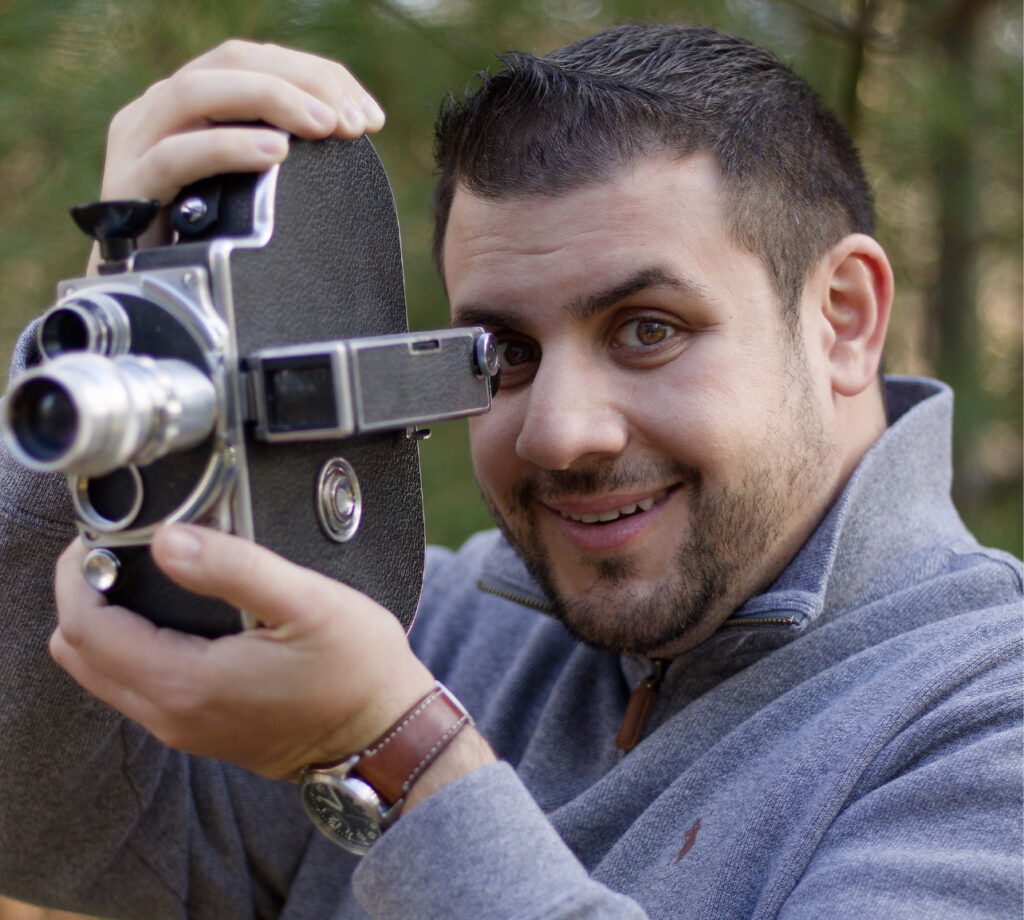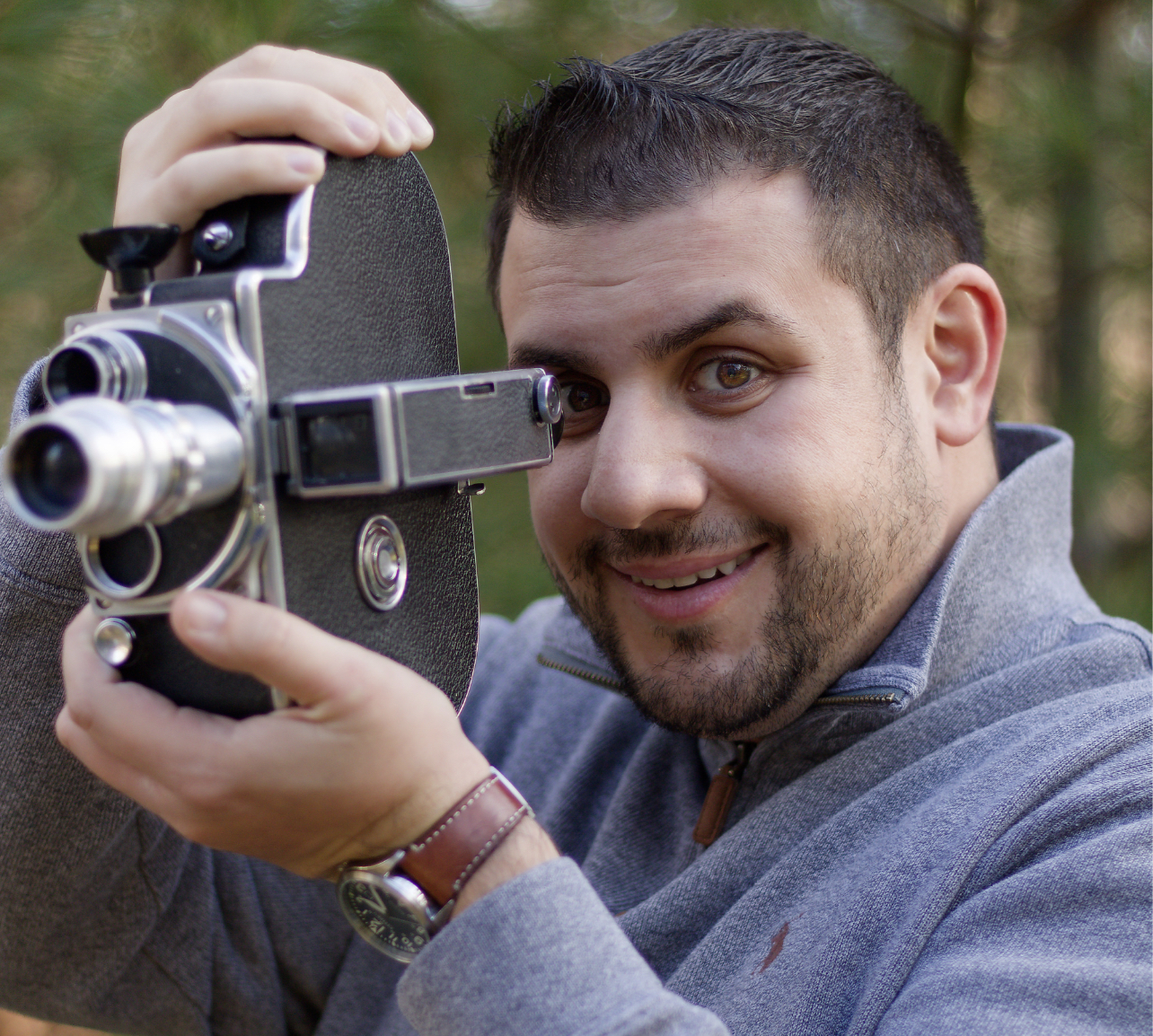Chris Esper is a Foxboro, MA-based filmmaker with several shorts and a lot of experience under his belt. A graduate from the New England Institute of Technology, his love for film extends as far back as his teenage years. Now a seasoned director of films like Imposter and Yesteryear, his work has toured several international festivals and has earned him many accolades. He founded Stories in Motion, a production company that just released his newest short, Distant Memories.
What was life like in New Jersey growing up?
I grew up in Bayonne, which is a very small town roughly an hour outside of New York City. I enjoyed my time there and it brings me a lot of nostalgia whenever I go back. It’s where I first discovered movies and fell in love with filmmaking. There was a video store about a block away from where I lived, and I would go there a lot, filling my mind with images and discovering a slew of great actors, directors, writers, etc. It was sort of my film history class before actually studying
film.
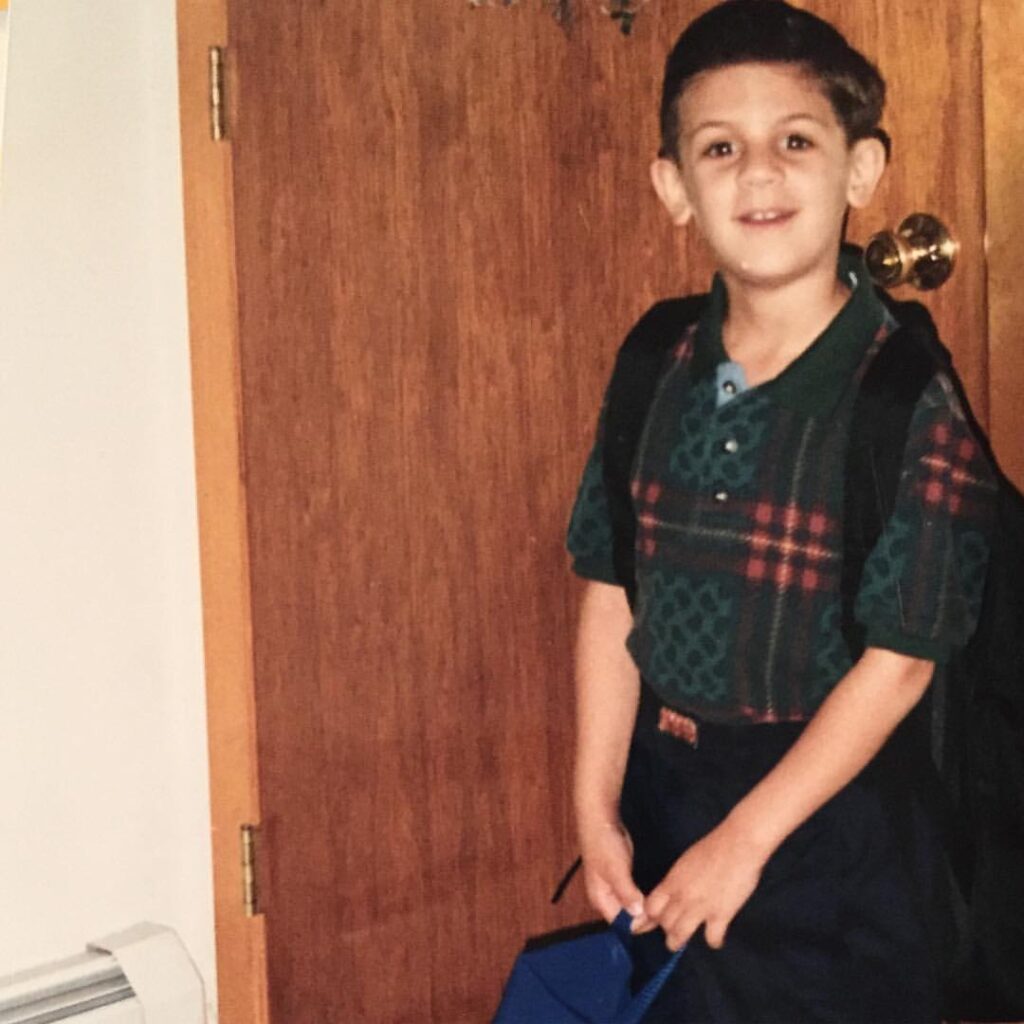
You received your first camera as a teenager; can you describe what film-related experiments you conducted with it? What really caught your fascination?
The first camera I got was a Canon Mini DVD camera and I also got a laptop that came with Windows Movie Maker. From then on, there was no going back. This would be around 2008 when YouTube was just becoming a platform. I made these short films where I was the actor, director, writer, editor, and cinematographer. I didn’t have any actors, so I would roll the camera, step in front of it, perform the scene, stop camera, and then do it again. It was a very silly one-man band operation, but I like to think I learned a little bit by doing this. So, I experimented primarily with framing, composition, and editing quite a bit. For example, one of my favorites was doing a Charlie Chaplin-esque comedy where the character is trying to get into his locked house. It was a lot of fun playing with speed to make the footage look like a silent film, adding effects to make it look older, etc. Ultimately, what caught my fascination is realizing how film combines all the great art forms into one medium from acting to photography, lighting design, editing, music, writing, etc. You can do anything with it to say a lot. The satisfaction was showing these films to friends and family and all reacted to what I was doing in a positive way or impressed that I made these on my own. Posting these to YouTube was fun, too, because it was by doing that I found other teenage filmmakers like myself and we formed a little community where we would talk movies and projects.
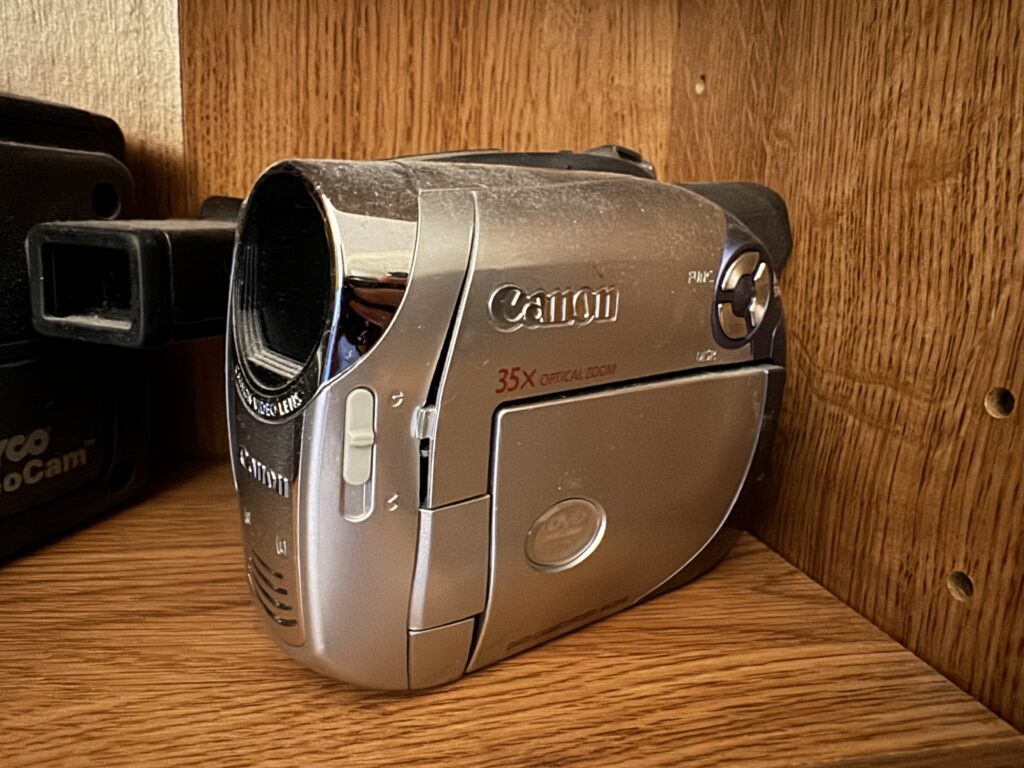
How did you settle on the director’s seat? What made you decide that you wanted to produce and direct?
I think what sold me on directing was the excitement I got in thinking about the stories that were near and dear to me, and also the movies themselves. I was especially captivated by listening to directors explain the intentions behind their choices when making their films. It was upon hearing them explain and dissect their films that I realized how much of an art form filmmaking was. I was excited by the prospect of telling a story through a camera.
Among all your directorial endeavors, whether past or present, which one do you consistently revisit to assess your personal growth? Any favorites?
It’s really hard to pick a favorite as my films are like my children, or at least what I imagine it’s like having children. I love them all, and proud of them all, but also for different reasons. Sure, there are some I wished turned out better or wished I knew more when making them, but I’m still proud of them as they each show progression. At the same time, I find it hard to watch my films again after completing them because I have lived with them for a year or more in the making of them. That being said, I often look at Imposter as a film where I see a lot of growth. It was a personal film for me, and I’m proud of the acting, photography, and just how the story was told differently. Likewise, I also love two comedies I made, The Deja Vuers and Undatement Center. I love those because they were absurd comedies done with understated performances, and I enjoy doing that in comedy. I like Yesteryear as a film that had no actors at all and just used home movies. It was so much fun finding a story out of nothing but raw home movie footage. I can now look back on Distant Memories and be proud as it, like Imposter, was a personal story and there’s a lot of growth in the cinematography, editing, and directing actors.
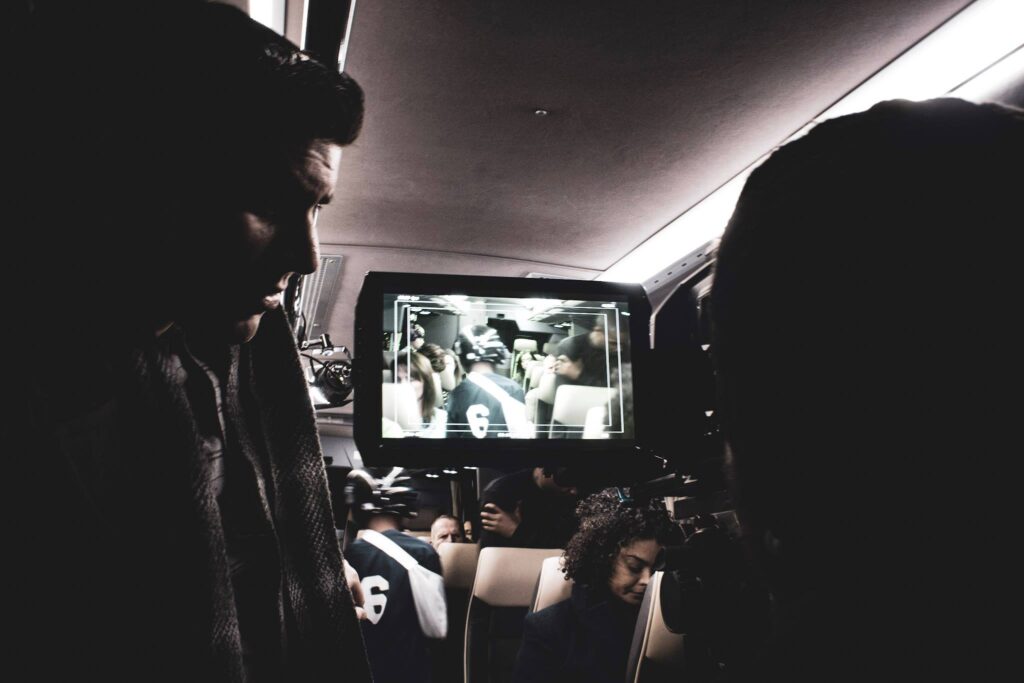
Which films or filmmakers inspire you?
My influences are very eclectic and diverse. At the top of my list would be Martin Scorsese. I love all of his films, but Raging Bull was specifically the movie that made me want to make movies. I was very taken by his approach and what he saw in the story, why he would choose certain shots, and choices of music and editing. It was the first movie where I was truly aware that directors were artists. I also love his dedication to film, its preservation, and his deep passion for cinema. I also love Michael Cimino for being a fearless filmmaker who had an uncompromised vision in all his films even after his career was tainted with the release of Heaven’s Gate. He’s a true artist with The Deer Hunter being my favorite of his. I also love Stanley Kubrick for that same reason along with his distinctive style and because he only made films that mattered to him. I think that the greatest lesson I get from his films is only to tell stories that you immerse yourself in deeply to the point of being in love with them. A Clockwork Orange and 2001: A Space Odyssey are two of his films that I often love revisiting. I’m also very influenced by Francois Truffaut, Michael Powell, John Cassavetes, Alfred Hitchcock, David Cronenberg, Yorgos Lanthimos, and Darren Aronofsky. I could probably list more names and movies, but what all these filmmakers have in common that makes me love them is their clear visions as artists and style. I especially love how Lanthimos, Aronofsky, and Cronenberg use surrealism in their stories by taking a common theme and making it different. In Lanthimos’ case, his use of absurdism is especially refreshing and interesting.
Your films have been released under the banner of Stories in Motion, a production company you founded. What are your long-term plans for the company? How do you plan on branching out to further your brand?
My long-term plan is to use Stories in Motion to make features. I love making short films, but want to go beyond that with a bigger canvas. Under the banner, I also sometimes make commercials, music videos, corporate content, and the like. I love doing that too, and still plan to use the company for that, but would ultimately love to get into feature filmmaking.
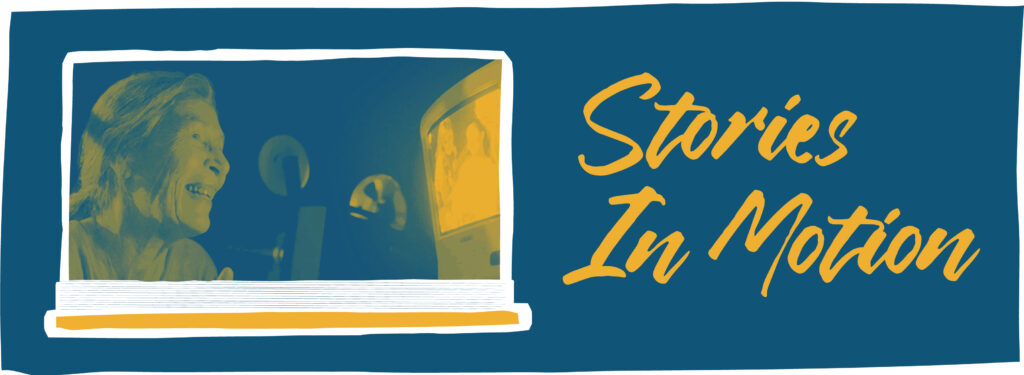
Diseases like the one in your latest work Distant Memories are devastating, so what was the process like researching it? Is the story coming from a personal place?
Yes, the story came very much from a personal place. I had two grandparents, one from each side of my family, who passed away due to Alzheimer’s Disease. I was rather young when those losses occurred, but it was devastating to witness and watch. So, in terms of research, it was taken from that, but I also read a little more about the subject and learned more about what they may experience, and what they may say or do. I also watched videos that gave a visual simulation of what it supposedly looks like from their point of view. I also watched a few movies about the subject. My producers on the film have also had direct experiences with seeing loved ones have the disease. Their feedback helped a great deal.
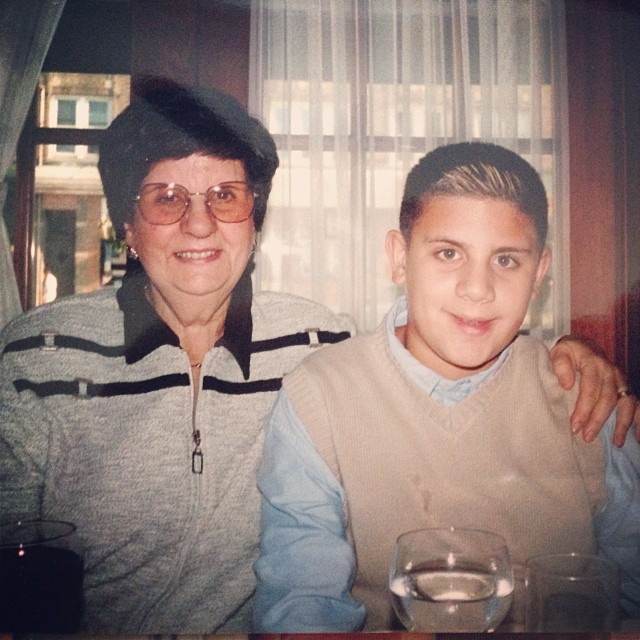
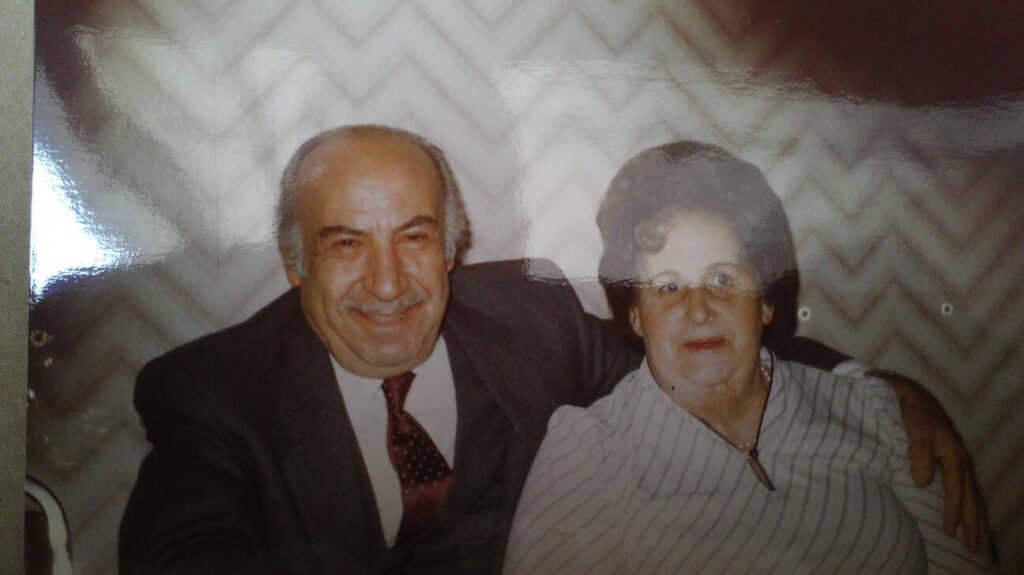
The concept of Anna rummaging around her memories in a corridor full of shelves was fascinating. How did that unique creative decision come about?
As I mentioned, I had seen a few movies about Alzheimer’s such as Still Alice and Barney’s Version. I also watched Amour which was not about Alzheimer’s, but was about watching a loved one slip away due to an illness. They’re all wonderful movies, but also very much grounded in reality and focus a lot on the family drama and the caretakers. I’m always interested in finding new ways to say something that has already been said. I always loved the idea of being inside a character’s head as they try to make sense of what is, what was, and what will be. I was amazed how a film never really took on the subject of Alzheimer’s by going inside their head. I was anxious to explore what that looks like and give the audience a new perspective. It wasn’t until after making the film that I saw The Father, which to me, is the best film about the subject. It’s so heartbreaking, moving, surreal and beautiful. That was the feeling I was going for. Also, when I think about Alzheimer’s, I think about memories and how it must feel to be inside a dark void where you’re trying to put together a puzzle of all these jumbled things that make up your lifetime. So, the initial concept of Anna looking at shelves of objects from her life came from that.
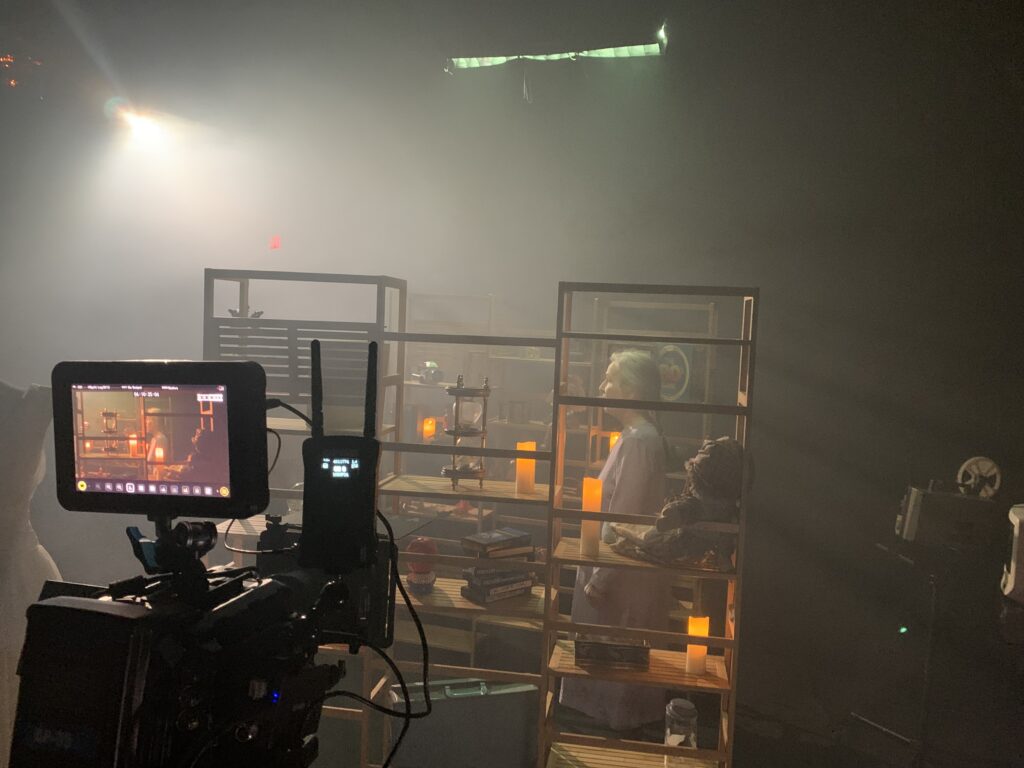
Old tapes and a projector visually distinguish Anna’s past. How was that achieved? Please provide us with some insight into the practical and post-production details related to that.
I was very adamant about shooting those home movie scenes in analog formats rather than digital as I find it always obvious when it’s digital and not real film or tape. In some ways, I’m kind of a purist for that stuff and was excited by the idea of mixing them with digital. So, we shot those scenes on super 8mm film, VHS, and mini DV tape, depending on the era in which the scenes took place. For all those scenes, I had the actors shoot those scenes. I didn’t have my cinematographer do it or myself. It was important to me that they look and feel authentic and not at all polished or professional. That also meant not having any lighting for those scenes and just using camera audio when possible. Had those been lit properly, they would have not had the right look. So, it was all done practically with very little post-processing other than some effects here and there.
Performances from the entire cast are superb. How did you conduct the casting process? What was it like working with your leading actresses?
The actors were all handpicked. I had worked with all of them on previous projects I made or happened to work on as part of the crew. Sissy O’Hara, for example, is someone I’ve known for 14 years. I met her when on an independent short film on which I was the Director of Photography. I would have been 21 or 22 at the time and was still very green in filmmaking, but we became fast friends and have worked with each other over the years on different projects. This was the first time I directed her in a leading role. She’s an incredible talent who is always on point. The difficulty with directing the film was making sure all the actors playing Anna were in sync with each other. Because four people are playing the same character, you have to make sure it’s not only believable, physically, but also in performance. They have to behave and act the same to come off as the same person. So, I had Sissy, Alyson Muzila (Middle Aged Anna), Chelsea Hueter (Younger Anna), and Gabriella Spinney (Young Anna) all discuss Anna’s backstory, where she came from, her family, likes, dislikes, beliefs, etc. We tried to build a full person. Likewise, Christie Devine played Noelle as an adult and Lily Ewald played Noelle as a pre-teen. We made sure to do the same thing there where we built a character that had memories that go back a long way. Christie is an actor whom I’ve known for almost a decade and she has been in several of my films. She’s a very hard-working actor who always takes direction well and always has a strong idea of her character. She and I have also become great friends over time. Nick Wakely and Tim Connelly also play Anna’s husband in two eras, and they are both terrific talents. They were so good at adding more to the home movies and giving the actors something to play off of.
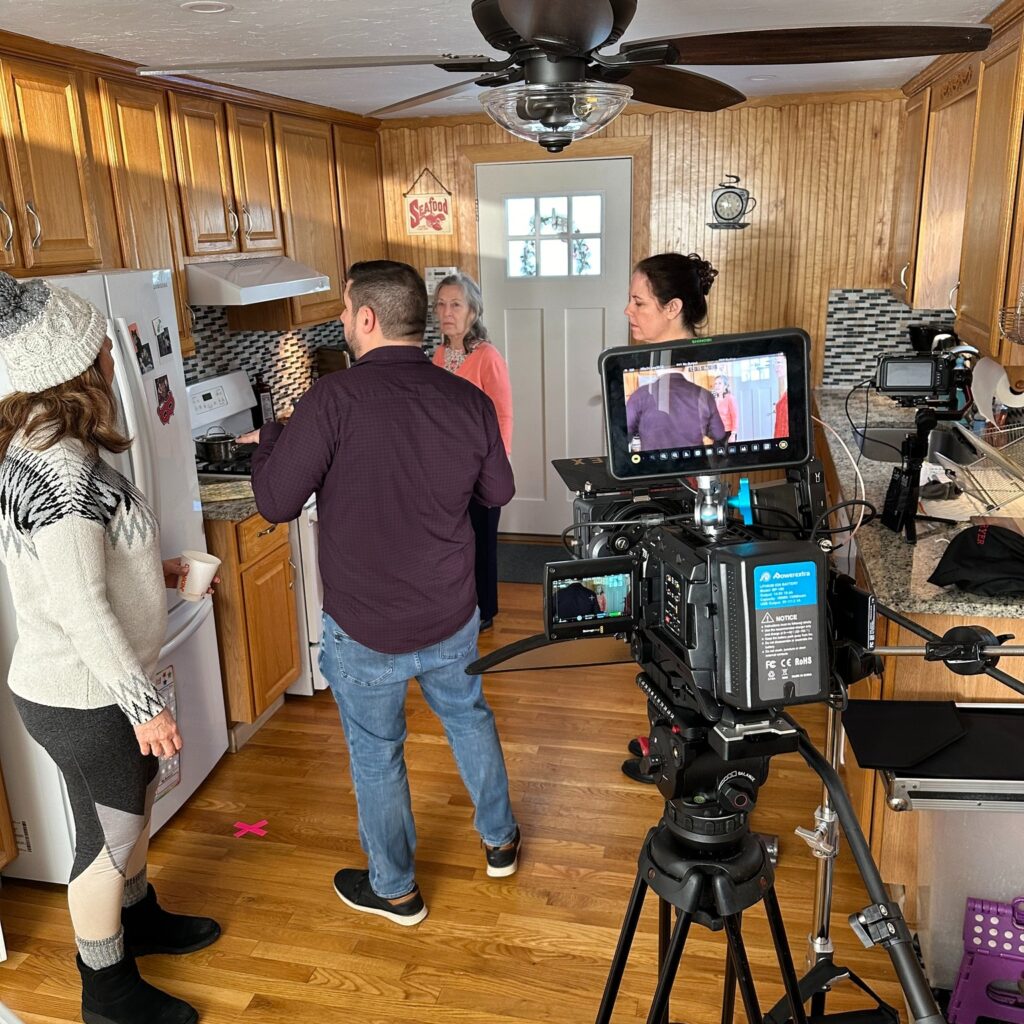
What was production like? Were there any hurdles you had to get through? What is your fondest memory from being on set?
The production was a great time. I had a great team between On Edge Productions and Del Negro Entertainment to help produce. It was collaborative and fun overall. There were plenty of hurdles to overcome, though. Namely, we started shooting in November 2023 and we were doing both indoor and outdoor scenes in a single day. So, the light was leaving us quickly. By the time the last scene was shot, the light was essentially gone. So, we had to reshoot that particular scene. Likewise, we needed more coverage of the scene inside Anna’s head as we only had barebones at the time, and getting those extra shots elevated the film a lot on an emotional level and allowed us to play with the editing and think of new ways to tell the story based on what we got. So, that was a hurdle that was a blessing in disguise. My fondest memory was doing the home movie scenes. That was the best time to shoot as we watched the actors improvise. Those scenes did not have dialogue written in the script. Again, because I wanted those scenes to feel authentic, I allowed the actors to come up with their dialogue and just go with it. They were amazing at making it feel in the moment. I also loved shooting the scenes in Anna’s mind. It was challenging in terms of production design and getting all the technical aspects of the ending in sync, but I loved shooting on that set and coming up with interesting angles and shots.
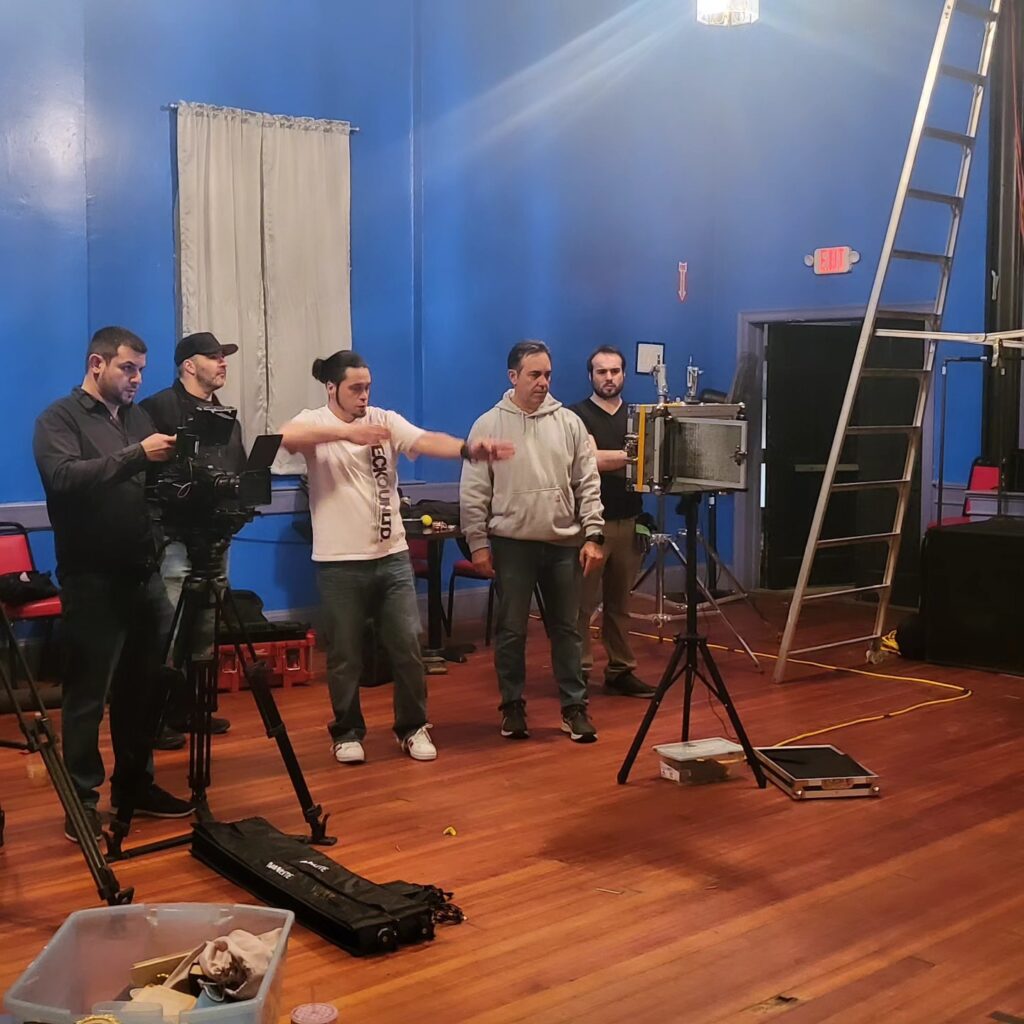
Has Distant Memories opened any new doors for you in your filmmaking career? What has the short’s reception been like?
The film is just starting to hit the festival circuit, so time will tell if it opens any doors. That being said, the reception has been beyond anything I expected. The most satisfying feeling is hearing people react in the theater with tears and sharing how personal the film felt for them. I’m especially proud to see the reactions to the performances in the film.
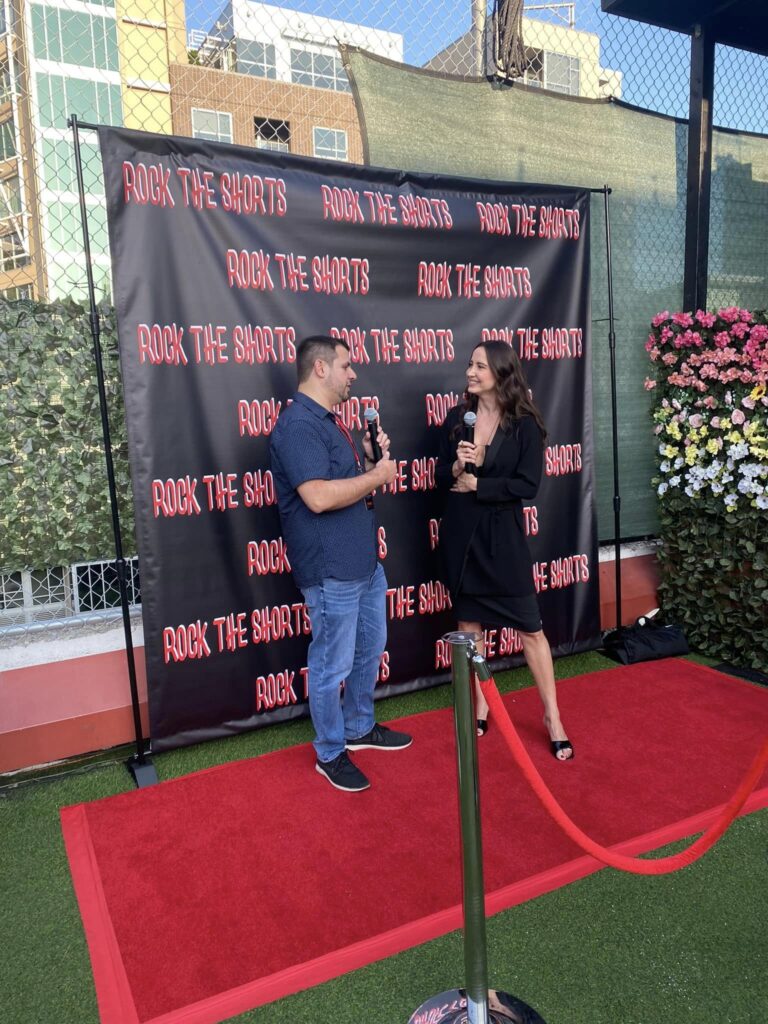
Do you have any new projects that we can look forward to?
I have a few short scripts that I would love to make and also two feature scripts, and I hope at least one of them gets made. That’s been my primary focus thus far. The possibilities are becoming quite exciting.

